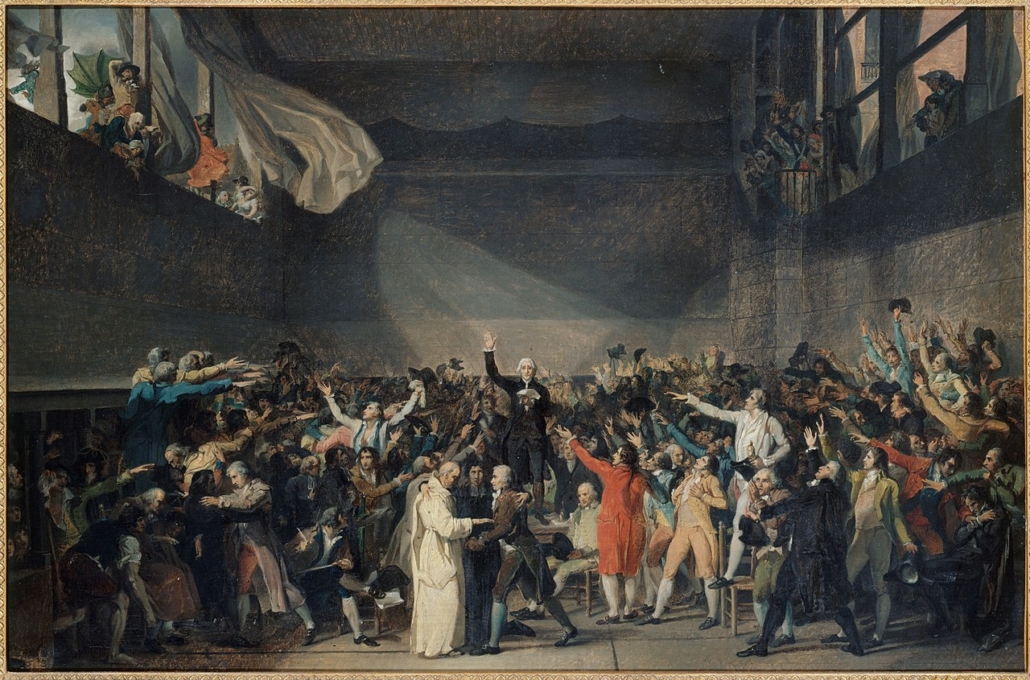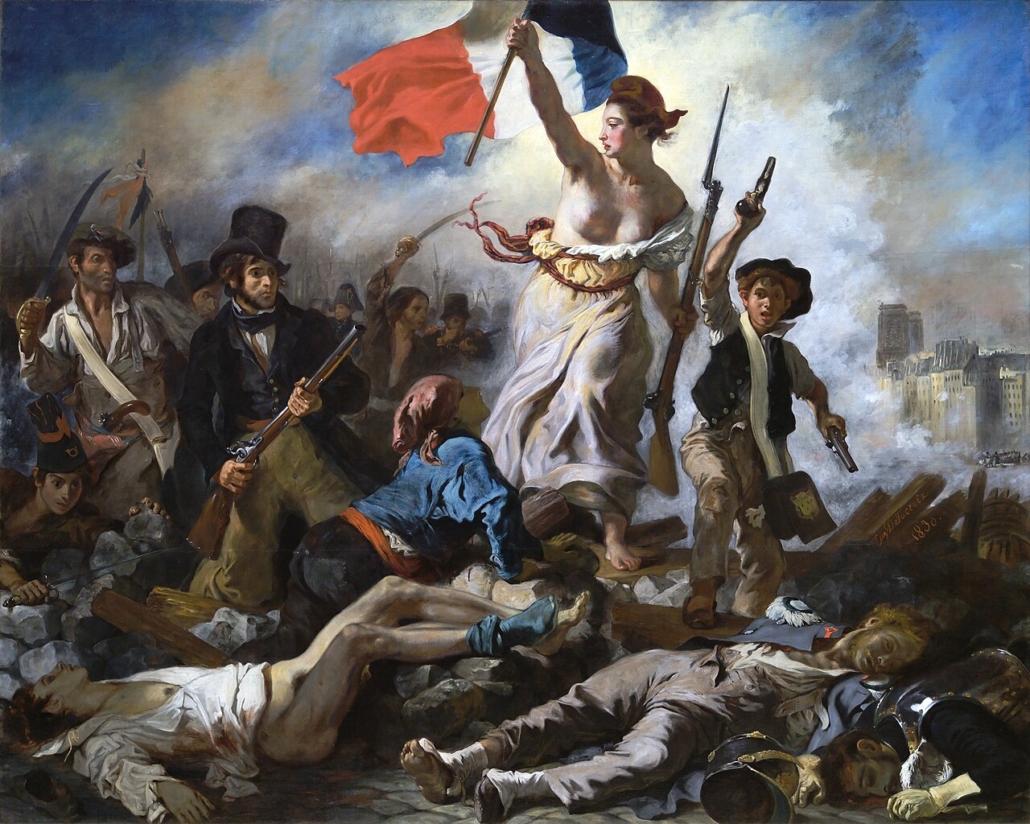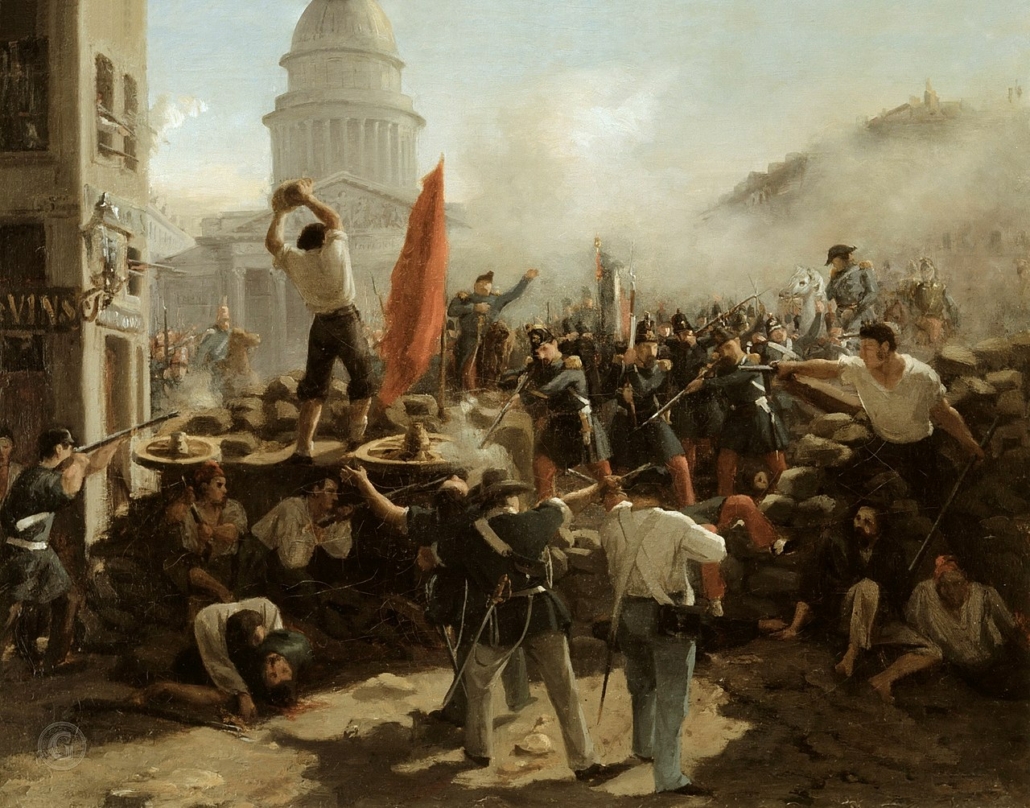
The results of the first round in the French presidential elections have been published (see La France se cabre devant les obstacles by Max Gallo). A ‘public intellectual’ – Max Gallo, historical fiction writer and member of the French Academy – has given an interview commenting on the outcome. The title – ‘France rears up when facing obstacles’ – sets the tone for his argument. Gallo claims that, since the end of the First World War, France has been in a prolonged crisis, leaving the nation ‘crumbling’. He describes this as a kind of national curse: a refusal to grasp the vital need to adapt.

This style of historicising commentary on current events – treating the past as if it were a blueprint for the future – is popular because it offers a neatly packaged, authoritative-sounding narrative. In reality, however, it is built from pre-existing prejudices and amounts to what Nancy Mitford once called ‘enjoyable fiction’. Here is why.
The electoral vote – inherently an ‘unintended’ outcome
The electoral process produces a new balance of power between parties. We may ‘intend’ our own party preference when casting a vote, but we do not ‘intend’ anyone else’s choice, nor the final distribution of seats. That balance emerges from the process itself and is, by its nature, unintended. There is no direct causal link between a single vote and the overall outcome, even though the latter follows the former. Between them lies the unbridgeable gap of an emergent process.
Why we have chosen to entrust our political system to such an emergent process is another story. What matters here is that no individual voter’s preference for one party causes the resulting balance of power.
Any narrative claiming to describe the ‘intent’ of voters obscures this fact. It replaces the emergent nature of the process with the fiction of an electorate that, when aggregated, expresses a unified ‘will’. To sustain this fiction, the imagined electorate is endowed with coherence and rationality. Yet it is illogical to suppose that millions of diverse, context-bound intentions can be distilled into a single, coherent, and rational entity.
The fiction of historical continuity and coherence
Max Gallo also assumes a form of historical continuity. To claim that the intentions of grandfathers meaningfully determine the voting patterns of their far more numerous grand- or great-grandchildren requires a suspension of disbelief. This is historical determinism with no suggestion of an escape route. In the meantime, profound social transformations – urbanisation, rising literacy, globalisation – have occurred, yet these are brushed aside. Instead, one particular and arbitrarily chosen event – the First World War – is said still to govern us. By the same logic, one could just as well lay the blame on Napoleon’s wars, or even on Clovis’ conversion.

Such thinking assumes that history has a clear starting point, that a single event can serve as a causa causans. In reality, the chains of historical causation extend infinitely backwards, arising from immeasurable depths and diffusing through society in ways that leave no traceable, linear pattern.
At best, one could argue – with Dawkins – for the existence of a ‘political meme’: a self-replicating behavioural pattern (see The Selfish Gene by Richard Dawkins). This would be a kind of political habit. Voters would be prisoners of such memes, not responsible agents, for the meme would be blind and ‘selfish’, bent only on survival rather than teleology.
In either case, the political process would be powerless to alter the supposed ‘flow of history’, making Gallo’s call to ‘understand the vital necessity to adapt’ little more than howling at the moon.
It is equally implausible to imagine that voters, through their ballots, are consciously affirming or rejecting an abstract ‘vital necessity to adapt’. In practice, they are choosing a politician (and associates) to make decisions on their behalf. Selecting a programme is an even more complex exercise, requiring the collapse of multiple, sometimes conflicting policy preferences into a single measure of ‘political utility’ – to borrow an economic term. We might say, colloquially, ‘on balance, I prefer this party’s programme’, but giving a coherent rational explanation risks lapsing into tautology. Isaiah Berlin, for example, argued that freedom and equity are inherently at odds – precisely the kinds of trade-offs embedded in party platforms.
In the end, this is rhetoric. Gallo urges France to embrace change ‘in sovereign fashion’: ‘This country will adapt to the world only if it accepts to be itself – in the world.’ It is an impressive-sounding formula, but what does it mean? Rhetoric appeals to emotion, not reason; under scrutiny, such phrases dissipate into mist.
It’s all about personalities
Gallo insists on addressing the question nationale – by which he presumably means France’s identity. He speaks of the ‘symbolism of the tricolore’, akin to Americans pledging allegiance to the flag, accompanied by the strains of the Marseillaise.

The rest of the interview deals with the supposed failure of President Sarkozy. According to Gallo, he is a victim of circumstances. First, the global crisis, which Sarkozy could not have mastered alone, absolves him.
Second, he is the victim of a twin-headed cabal: a transgressor against the ‘French intellectual elite’ – presumably urban – and, at the same time, a ‘mixed-blood politician’ from suburbia, without deep roots in the France profonde from which his predecessors emerged.
How could he win when attacked from such opposite sides? Once again, we have historical determinism: on one side ‘unchangeable forces’, on the other Sarkozy’s ‘unchangeable personality’. This casts him as a tragic figure – though one might argue otherwise, invoking the Han-era strategy ‘yi yi zhi yi’ (‘using barbarians to check barbarians’), a shrewd policy for over 2,000 years (see Trade and Expansion in Han China by Ying-shih Yü).
Elections as catharsis
Catharsis or katharsis (κάθαρσις) is a Greek word meaning ‘cleansing’ or ‘purging’. It is derived from the verb kathairein (to purify, purge), and relates to the adjective katharos – ‘pure’ or ‘clean’.
We are told to believe one is either a victim of fate or the architect of one’s own destiny. This dichotomy is a figment, obscuring the complexity and flexibility of context. Between the Scylla of historical inevitability and Nietzschean ‘will to power’ lies a pragmatic middle ground.
Elections represent a clean break with the past. They are a cathartic process through which the past is consensually consigned to the ‘dustbin of history’, and politicians are invited to tackle the present afresh, with a new balance of power. They also establish a baseline from which to judge politicians: one praises or condemns them for what happens ‘on their watch’, which begins on election day.
In a sense, elections are ‘feasts of forgetting’, as celebrated among Amerindians (see Before the Revolution by Daniel K. Richter). The politician of the outgoing legislature becomes the sacrificial lamb who, like Jacob in the Bible, is either offered up or resurrected through a renewed covenant with the people. The gap between individual intent and collective political outcome absolves citizens of responsibility for the future, while simultaneously settling the question of who will lead for the next few years.
What, then, to make of Gallo’s ramble? The boundless array of possible policies must first be narrowed to the ‘politically feasible’ by eliminating most of the wilder ideas. What remains is the pragmatic middle ground, where consequentialist reasoning can operate.
Gallo’s intervention is an effort to shape this narrowing process. That is his ambition. Whether he will succeed is another matter entirely. As Michael Ende writes, life is ‘an enormous, utterly empty building, in which any loudly spoken word triggers an utterly never-ending echo’ (see Der Spiegel Im Spiegel by Michael Ende).
—
The likely outcome? My conjecture: Hollande will become president of France. The legislative elections will return a majority for Sarkozy’s centre-right UMP party. On TV, Alain Juppé is already manoeuvring to become prime minister. Marine Le Pen will succeed in ousting Sarkozy but fail to destroy UMP.
The post was first published on DeepDip.
Explore more of Aldo Matteucci’s insights on the Ask Aldo chatbot.
Click to show page navigation!




